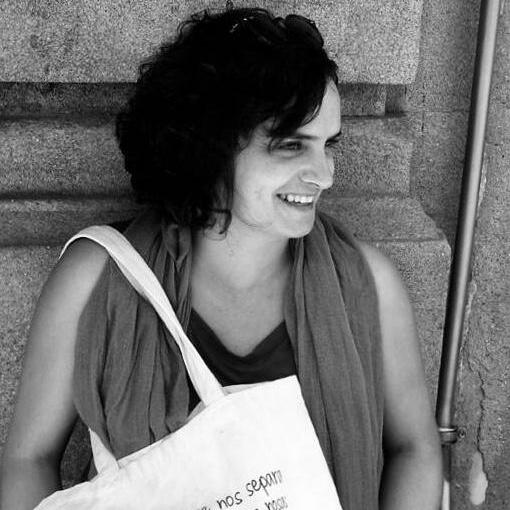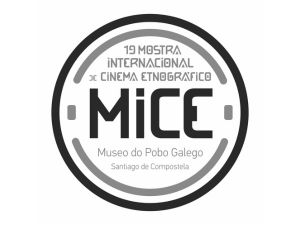MICE’S AWARDS FOR THE OFFICIAL SELECTIONS: INTERNATIONAL & GALICIAN
The members of the jury for the Official Selections will be in charge of giving MICE’S Best Film Award (1000 euros, a trophy, and a diploma), and MICE’s Best Galician Film Award (800 euros, a trophy, and a diploma).
This year, the international jury is composed by:



CATHERINE BARBOUR
Catherine Barbour is Head of the Hispanic Studies Department and Director of Global Engagement in the School of Languages, Literatures and Cultural Studies. Specialised in contemporary Iberian (especially Galician) literature and visual culture, with particular interest in gender and sexuality, decoloniality y el multilingualism. She also has a keen interest in comparative literature and multilingual education. Her publications include the monograph Contemporary Galician Women Writers, published by Legenda in 2020. In 2022 she was awarded an Irish Research Council New Foundations Award for collaborating with the Women’s Collective Donegal researching the role of creative practice in women’s empowerment. PhD Barbour is member of Higher Education Academy and in 2019 she was awarded the University of Surrey Vice Chancellor’s Award for Early Career Teacher of the Year.
ADRIANA PÁRAMO
Filmmaker. After graduating in Audiovisual Communication at the Universidad de Santiago de Compostela, Adriana Páramo Pérez (Vigo) studied a master’s degree in Film Directing at the London Film School. She directed Galicia. Portobello Road (2014) and Illa Pedra (2010), which became the first Galician fiction short film with audiodescription for blind people. She also creates videopoems adapting the poet Lara Dopazo’s work: A necesidade do outro (2011) and Ovella (2017), which have been screened at festivals. Anatomía dunha serea (2022) was her fifth short film as a director. She is also the founder of the Galician Film Forum (2015), an organisation that exhibits Galician cinema in the UK and which has the collaboration of the Spanish Embassy and Abanca sponsorship. She currently lives in Galicia, where she is working on her thesis project in documentary and genre for the Royal Holloway University of London.
ELOY DOMÍNGUEZ SERÉN
Filmmaker and teacher. Graduated at Universitat Autònoma de Barcelona, he began his career as a film critic, as co-founder and co-director of the magazine A Cuarta Parede. In 2010 he was a member of the Youth Jury at the 67th Venice Biennale. In 2012 he moved to Sweden, where he filmed his short film Pettring (2013) and No novo ceio (2014) and the medium-length film Jet Lag. His film No Cow On The Ice was premiered in 2015 at Visions du Réel. In 2017 his new project Hamada was selected at the Doc Station of Berlinale, and it was recognised with two awards at the Doc Outlook de Visions du Réel and also awarded at Gijón International Film Festival, Tempo or Porto/Post/Doc, and at the MICE Museo do Pobo Galego itself. In 2020 he releases two more short films: Safety Distance, about the pandemic in his hometown, and Os Corpos, premiered worldwide at IDFA, presented in Galicia at MICE, selected at Clermont-Ferrand, Jeonju or Bafici, and awarded in Tempo or Play-Doc. In 2022 he releases Rompente, winner of the Best Short Film Award at Málaga’s Film Festival, and nominated for the Goya Awards 2023. His most recent work is Al otro lado del mar, a documentary film co-directed with Colombian filmmaker Samuel Moreno Álvarez, which was also presented in Galicia at the MICE Museo do Pobo Galego.
AGANTRO JURY
The AGANTRO Award for Anthropology Excellence, awarded by the Galician Association of Anthropology, is endowed with 500 euros and a trophy. This year, the members of the AGANTRO jury are:



Iria Vázquez Silva
She holds a PhD from Universidade da Coruña and she is specialist in Gender Studies, first from Universitat Autònoma de Barcelona (2006) and later from Universidade de Vigo (2008). She has developed several research projects in the field of gender anthropology and migrations. Her current lines of research include both transnational migratory movements and violence against women. At present, she is a PhD assistant lecturer in Sociology at Universidade de Vigo and a member of the “Grupo de Estudos en Traballo Social: Investigación e Transferencia” (Social Work Studies Group: Research and Transfer.) She has recently coordinated, together with David García and Nuria Fernández, the book “Arredor do rural. Comunidade de saberes e innovación socio-educativa” (Around the rural world. Community of knowledge and socio-educational innovation), published by Toxosoutos. Previously, she coordinated “Cómplices. A violencia machista institucional” (Accomplices. Institutional violence against women), published by Galaxia, among others.
Víctor Villar Caamaño
His training and career were not connected to the academic filed. However, the fact that he had several professions for more than 30 years, from shipbuilding to construction, from hotel industry to renewable energies, among others, gave him a broad vision of the social reality and the geography of our country. In the social sphere, he worked at the self-managed social centre “A casa enkantada” in Compostela, joining the photography collective for the social action “Positivo/Negativo.” Some time later, he took part in a similar model in the town of Ribadeo, the “Formigueiro”, getting involved in a training and agro-ecological development cooperative for unemployed people.
For more than a decade he was part of Amarante Setem, a reference organisation in Galicia in the solidarity and international cooperation sector, participating in campaigns such as “Who owes whom?” or “Clean clothes”, contributing to the creation of the Galician Committee in support of the MST (Movemento dos sem terra do Brasil). In the cultural sphere, as part of the “Sonda Norte” platform, he had the opportunity to take a performance format to the streets, for which he composed poetry and songs, known as “Ruacital.” Together with the piano teacher Martín Bucki and the contemporary dance teacher María Xusto, he founded a small performing arts company called “O tren de Moebius”, and he wrote and directed the plays “Ardora” and “Memorias do Anxo.” He currently lives in A Coruña, after obtaining a post for Public Service in ADIF, and he is studying a degree in Social and Cultural Anthropology at the UNED. He is also a member of AGANTRO and “Fundación de los comunes” (The Commons Foundation).
Iñigo Sánchez-Fuarros
He is an anthropologist and Ramón y Cajal researcher at the Instituto de Ciencias do Patrimonio—INCIPIT (Institute of Heritage Sciences)— of the CSIC—Spanish National Research Council— in Santiago de Compostela. His lines of research address the intersections between expressive culture, tourism, materiality and heritage processes, with a special interest in methodologies that bind together ethnography, image, and sound. He previously worked as a post-doctoral researcher at Universidade Nova de Lisboa and at Queen’s University in Belfast. He coordinates “PALCOS. Material culture and festivities in the Galician countryside,” funded by the Galician Innovation Agency—GAIN—, and he is also co-main researcher of the project “HabitPAT: The heritage conservation,” funded by the Ministry of Science, Innovation and Universities. He is also responsible of «XEITO | Ethnographic creation laboratory,” an Incipit infrastructure aimed at exploring the connections between ethnography and artistic creation processes.


